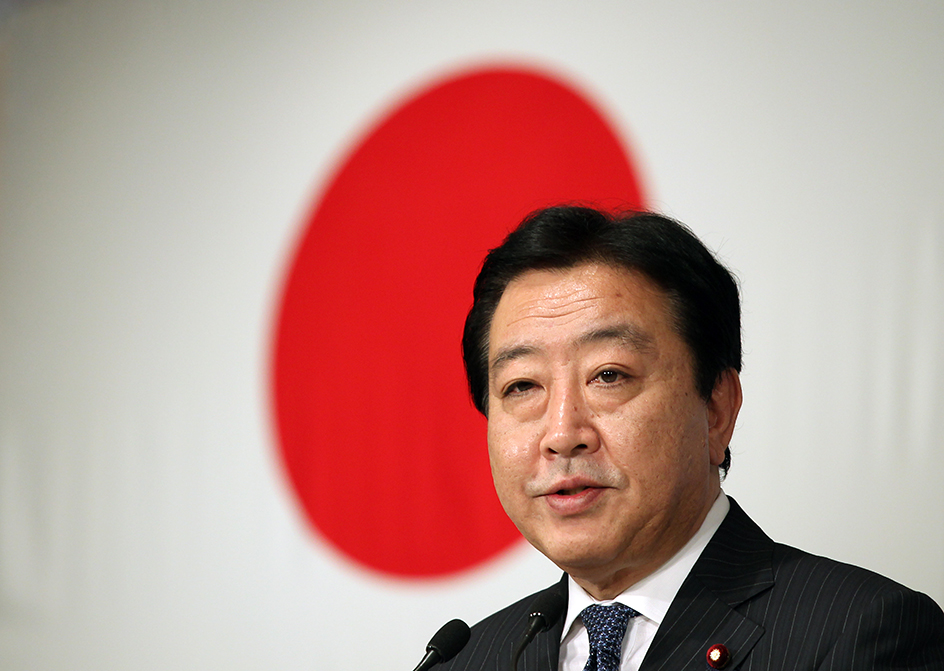Noda, Yoshihiko (1957-…), was prime minister of Japan from September 2011 to December 2012. He headed the Democratic Party of Japan (DPJ). He took office following the resignation of Prime Minister Naoto Kan, under whom he had served as finance minister.

Noda was born on May 20, 1957, in the city of Funabashi, in Chiba Prefecture. He graduated from the School of Politics and Economics at Waseda University in Tokyo in 1980. He later studied at the Matsushita Institute of Government and Management. The institute is a school in Chigasaki, in Kanagawa Prefecture, for students hoping to become leaders in politics and business.
In 1993, Noda was first elected to the Diet, Japan’s national legislature. Unlike many of his peers, Noda did not come from a prominent political family. He liked to highlight his humble background in his speeches.
In 2010, Prime Minister Kan appointed Noda to the position of finance minister. In 2011, Noda was faced with dealing with the financial aspects of the government’s recovery from a series of disasters that devastated Japan. That March, an earthquake had struck off the coast of Honshu, causing a tsunami (series of powerful ocean waves). In addition to causing widespread destruction on Honshu, the tsunami sparked an emergency at the Fukushima Daiichi Nuclear Power Station. Kan was criticized for his government’s slow response to these disasters, and he stepped down in August. The DPJ chose Noda to succeed him, and Noda took office in September. Following the earthquake and tsunami, all of Japan’s nuclear power plants shut down for maintenance and safety inspections. Under Noda’s direction, some of the plants began reopening in July 2012.
Noda’s government made several decisions that had lasting effects on Japan’s international relations. In late 2011, Noda announced that Japan wanted to join the international group negotiating a Trans-Pacific Partnership (TPP) free-trade agreement. Japan officially joined the negotiations in 2013.
In September 2012, Japan’s government purchased several uninhabited islands in the East China Sea from their private owner. The islands belong to a group of islands whose ownership is disputed by Japan (which refers to them as the Senkaku), China (which calls them Diaoyu), and Taiwan (which spells their Chinese name Tiaoyu). The islands lie near rich fishing waters. In addition, experts believe deposits of oil and natural gas may lie under the sea floor beneath the islands. Noda had hoped the purchase would lessen tensions, especially between Japan and China, but the dispute has continued.
